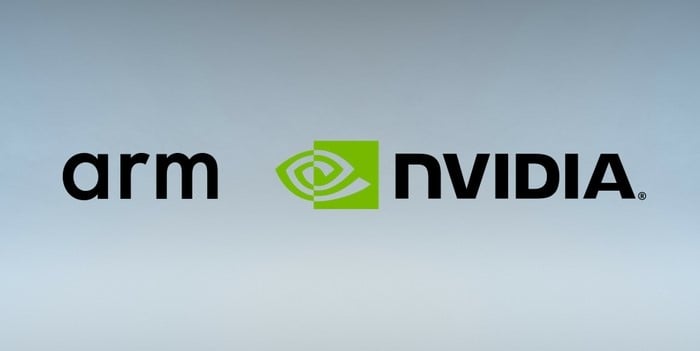US Trade Watchdog Opposes Nvidia's Arm Buy, Mostly Over Fears About Datacentre Innovation

The US Federal Trade Commission, having previously expressed unease about Nvidia's plan to acquire UK chip design firm Arm, acted on its concern Thursday by suing to prevent the deal.
"The FTC is suing to block the largest semiconductor chip merger in history to prevent a chip conglomerate from stifling the innovation pipeline for next-generation technologies,” said FTC Bureau of Competition director Holly Vedova, in a statement. "Tomorrow's technologies depend on preserving today's competitive, cutting-edge chip markets."
Nvidia's acquisition offer – a cash-plus-shares bid that was announced at $40 billion and is now worth more than $50 billion thanks to the rising value of the 44.3 million Nvidia shares to be issued to Arm if and when the deal is consummated – was already under scrutiny from the UK Competition and Markets Authority.
The UK regulator received objections from other tech vendors who, fear Nvidia might withhold access to ARM technology for its own benefit. China and Europe have also been pondering the proposed deal, with the former conducting an informal review and the latter pursuing an official inquiry.
Datacentre concerns dominate
It is notable that the FTC's complaint names CPUs designed for clouds and SmartNICs as two of the markets it feels will be distorted if the transaction goes ahead.
Both of those markets are at very early stages. A handful of hyperscalers have deployed Arm CPUs. SmartNICs are broadly deployed by hyperscalers, but it is only in the last 12 months that vendors have started to package them for mainstream use.
The FTC clearly thinks a combined Nvidia/Arm could dominate both markets.
Yet Intel and others already make SmartNICs. And the likes of Amazon, Ampere, and several Chinese hyperscalers have already shown they can make Arm-powered CPUs ready for cloud-scale workloads.
The FTC's main worry seems to be that Nvidia couldn't help itself and would either use ownership of Arm to sneak a peek at licensees' work on the platform, or direct Arm to make its designs less useful so Nvidia could dominate. Yet its announcement doesn't mention markets in which Arm already dominates – smartphones and the IoT – as areas of concern. – Simon Sharwood
As Vedova sees it, "This proposed deal would distort Arm's incentives in chip markets and allow the combined firm to unfairly undermine Nvidia's rivals."
A spokesperson for Nvidia made the FTC lawsuit sound like routine negotiation.
"As we move into this next step in the FTC process, we will continue to work to demonstrate that this transaction will benefit the industry and promote competition," Nvidia's spokesperson told The Register in an email.
"Nvidia will invest in Arm's R&D, accelerate its roadmaps, and expand its offerings in ways that boost competition, create more opportunities for all Arm licensees and expand the Arm ecosystem. Nvidia is committed to preserving Arm's open licensing model and ensuring that its IP is available to all interested licensees, current and future."
A spokesperson for Arm said to seek comment from Nvidia.
Nvidia proposed the deal back in September 2020. At the time and since then, it promised to continue Arm's open-licensing model and to maintain customer neutrality.
The FTC clearly doesn't believe that. The US trade watchdog argues in its complaint that letting Nvidia ingest Arm would "give Nvidia the ability and incentive to use its control of this technology to undermine its competitors, reducing competition and ultimately resulting in reduced product quality, reduced innovation, higher prices, and less choice, harming the millions of Americans who benefit from Arm-based products."
The agency cited three specific areas of concern where Nvidia competes using Arm-based hardware: High-Level Advanced Driver Assistance Systems for passenger cars, Data Processing Unit (DPU) SmartNICs, and Arm-based CPUs for cloud service providers.
The FTC is also worried that Nvidia, upon gaining control of Arm, will gain access to sensitive competitive information Arm customers have shared with the UK-based chip design biz.
Agency commissioners voted 4–0 to file the lawsuit and an administrative trial is scheduled for August 9, 2022. ®
Gyrostat Capital Management: Why Risk Management Is Not About Predicting Risk
Why Risk Management is Not About Predicting Risk Financial markets reward confidence, but they punish certai... Read more
Gyrostat January Outlook: Calm At Multiyear Extremes
This monthly Gyrostat Risk-Managed Market Outlook does not attempt to forecast market direction. Its p... Read more
Gyrostat December Outlook: The Market Does The Work
Harnessing Natural Volatility for Consistent Returns Markets have always moved more th... Read more
Gyrostat Capital Management: Why Advisers Must Scenario-Plan Both The Bubble And The Bust
The Blind Spot: Why Advisers Must Scenario-Plan Both The Bubble and The Bust In financial m... Read more
Gyrostat Capital Management: The Hidden Architecture Of Consequences
When Structures Themselves Become A Risk In portfolio construction, risk is rarely where we look for it.... Read more
Gyrostat November Outlook: The Rising Cost Of Doing Nothing
Through the second half of 2025, markets have delivered a curious mix of surface tranquillity and instabi... Read more

